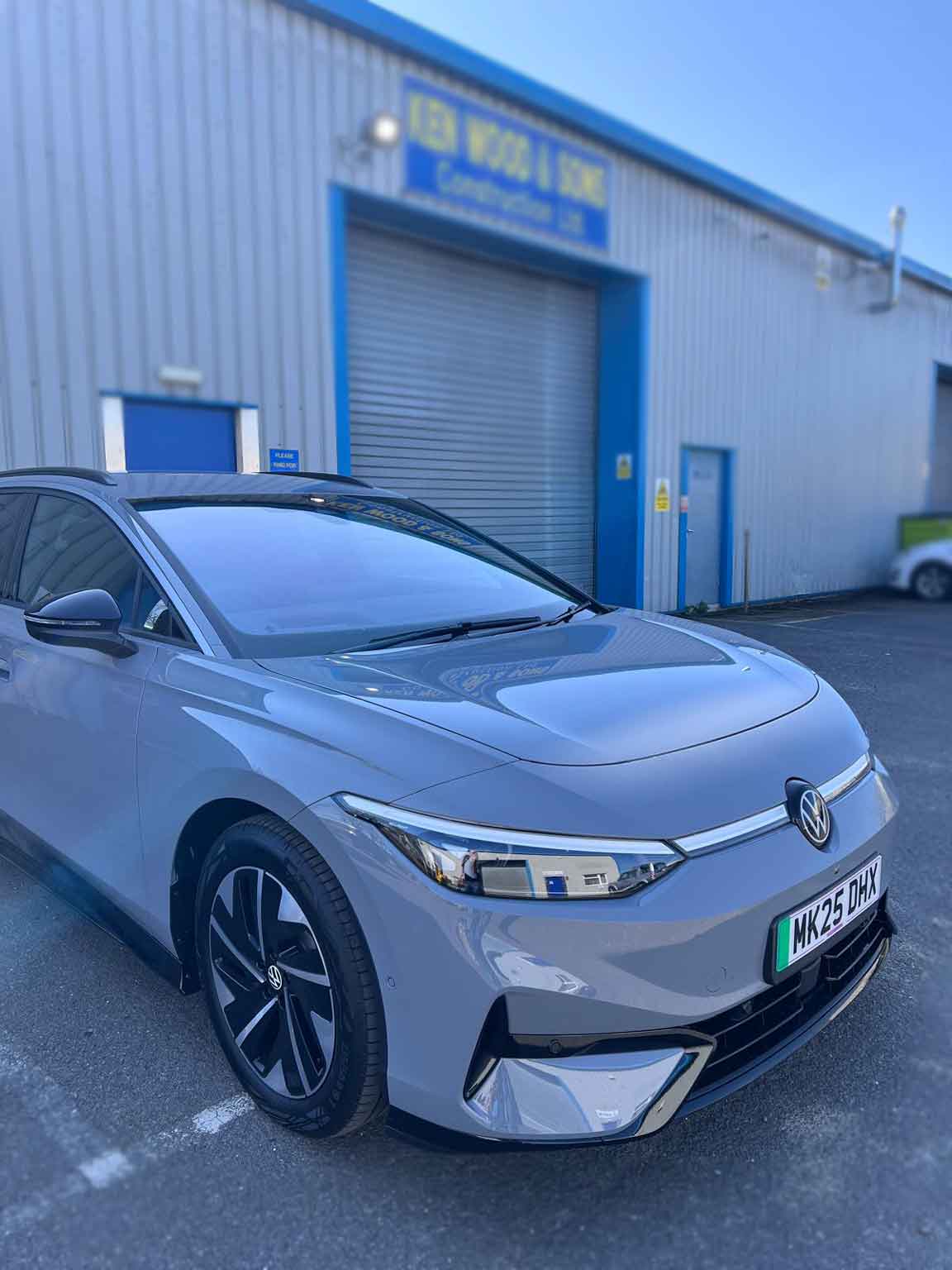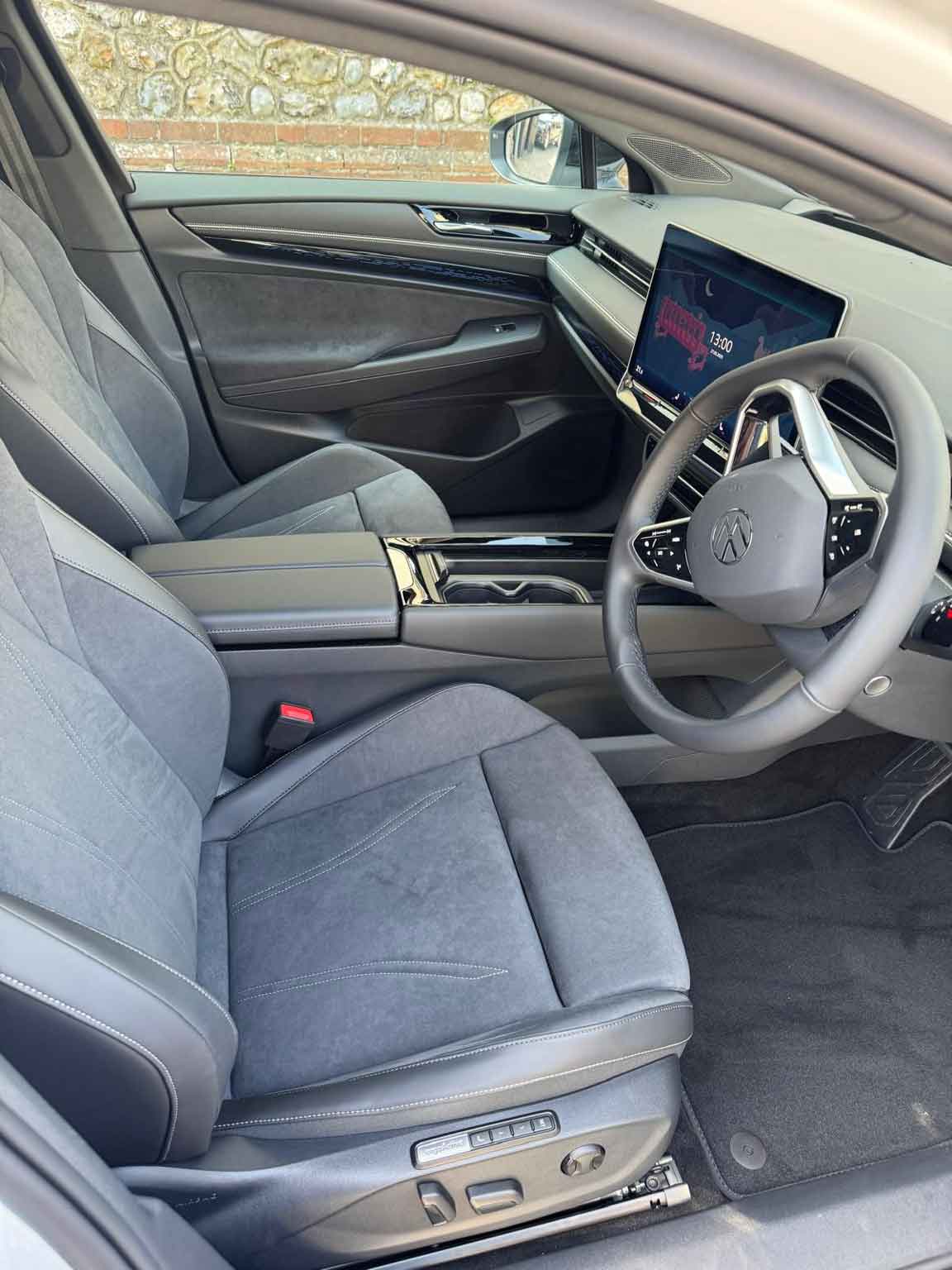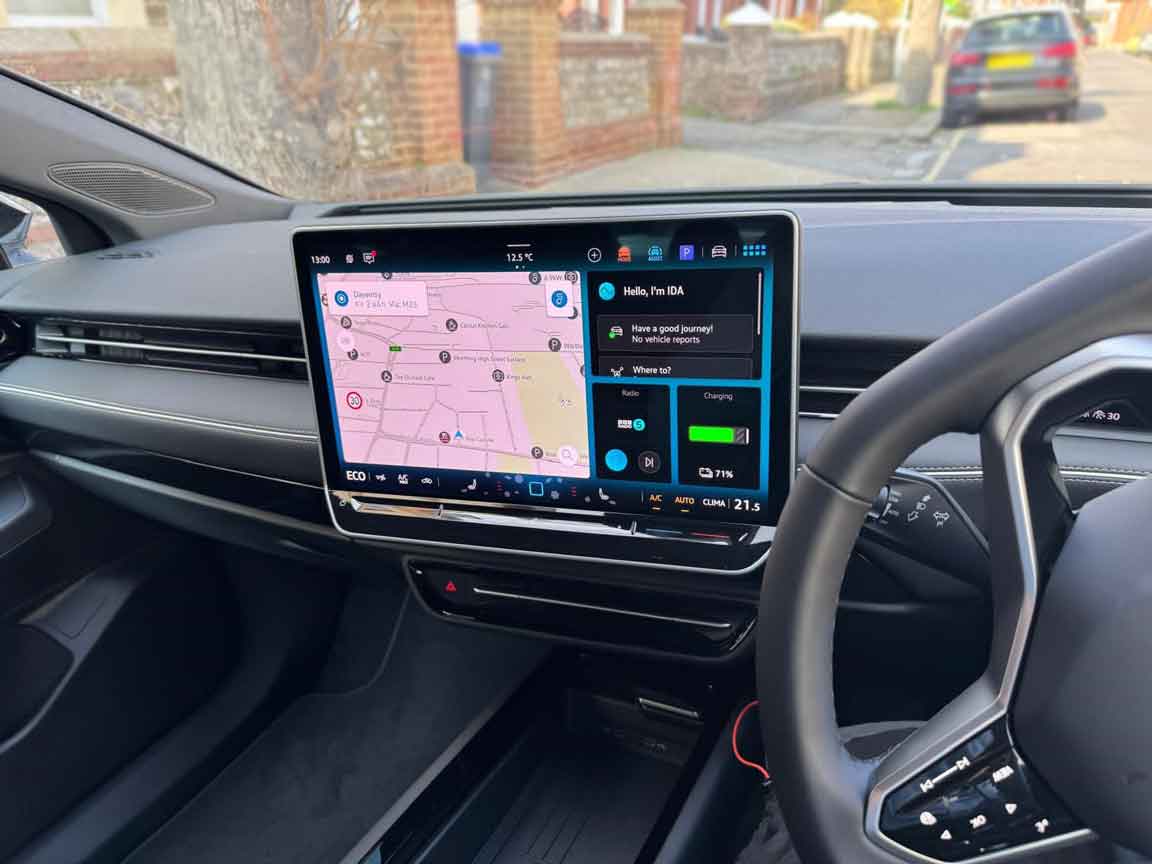
Mon-Fri 9am-5pm
Talk to our friendly electric car leasing experts now: 01942 910 001This website uses cookies to ensure you get the best experience. Learn more
Your Definitive guide to the VW ID.7 Tourer Electric Car lease

The VW ID.7 Tourer Electric Car Lease - Your Definitive guide
Electric car sales are very much rising in the UK. This is an interesting conundrum for both new and used cars, with a wave of political and economic changes seemingly impacting this uptake.
The push and pull linked to zero-emission sales is nothing short of inconsistent, with almost monthly changes taking place in what can be referred to as a turbulent industry. While the media has calmed somewhat on its anti-EV rhetoric, there are still some difficult pieces which are not helping UK customers to properly understand what vehicle and energy choice is most suitable for their needs and requirements.
While a good news undertone, several news platforms have jumped onto the March 2025 stats for vehicles sales in the UK, purporting that we are now transacting some 100,000 EVs per month in the UK, as records continue to be broken.
While global EV sales are very much increasing, we do need to be careful on how we report and disseminate information on BEVs in Britain. As per the SMMT pure electric vehicles (i.e. battery only) accounted for 69,313 registrations in March 2025, with 33,815 PHEV options also being registered.
With a collective total of 103,128 electric/ part-electric cars, while a tremendous achievement (43% increase on last year) we do need to carefully report on what is actually happening. With the Government allowing plug-in options to continue for longer than anticipated, the separation between these two fuel options is important.
To simplify this, a BEV - a battery electric vehicle - is one which is solely powered by batteries (generally lithium-ion). There is no combustion engine element to the vehicle. The driver must ensure the vehicle is charged adequately in order for the vehicle to operate.
The growth of what we refer to as zero-emission vehicles (hence the ZEV Mandate name) has been a mixture of tax incentives for business fleets, salary sacrifice schemes and whole of life cost savings for retail and personal customers.
The amendments to the ZEV Mandate have not stopped these vehicles from being our ultimate ambition; by 2035, most manufacturers operating in the UK will have to be producing vehicles in a battery-only format. That is, unless hydrogen becomes more popular and affordable. But in making changes to the ZEV Mandate, the hybridisation of the UK’s fleet will follow.
A PHEV, being a plug-in hybrid electric vehicle, has been around for some time and is not a new facet. When the UK made significant tax changes to zero-emission vehicles, as per above, there was a shift from company car and salary sacrifice drivers from these options.
But with some brands finding it difficult to make EVs successful and profitable, there have been requests for more flexibility with alternatively fuelled cars, like the PHEV derivatives. With these cars, you still have a combustion engine which operates with or separately to the batteries.
Over the last few years some brands have used bigger and more improved batteries with their plug-in cars to minimise CO2 output (for tax reasons) and to improve the zero-emission driving capability. Some bigger SUVs, like the Range Rover Sport and full-size options, have seen these technological improvements operate to their benefit.
For high-mileage drivers, those without off-road charging and for customers who are simply not keen on all-electric options, the pursuit of a PHEV is likely to occur. Along with Government backing, we are likely to see car makers revert to these, especially for the retail and consumer markets, where HMRC tax advantages simply do not apply. So long as drivers are genuinely charging, and utilising the lithium-ion battery, there are arguments to suggest that this is better than a pure combustion option.
We do encourage potential electric customers to consider our website and the corresponding tools, to ensure that the battery life is a suitable one. If there is a lack of comfort with this, head to our sister company CarLease UK for PHEV and other hybrid options. For families looking to go electric, and who want a practical and ergonomic vehicle, there are some all-electric estate vehicles on offer. While a nation obsessed with SUV, crossover and 4x4 vehicles, there are at least a smattering of robust electric EVs to consider including:
- BMW i5 Tourer;
- Audi A6 e-Tron Avant;
- MG5 Estate (being discontinued);
- Vauxhall Astra Tourer; and
- VW ID.7 Tourer.
It is the ID7 shown here, which has been an incredibly popular and practical family EV. Having just received a slight update alteration and update, the premium comfort mixed with exceptional range capabilities is making this the default company car choice. With striking exterior design, spacious interior, a Smart Glass panoramic roof, comfort and climatronic seats, this is an estate everyone should consider. There are 3 key options to choose from:

- Pro Match Plus - from £51,795 this includes 19” alloys, 15” navigation display, augmented HUD, area view camera, rear view camera, keyless access, energy efficient heat pump, IQ.Light climate windscreen, electric tailgate, privacy glass, air care climate control, electrically folding mirrors and lane assist;
- Pro S Match Plus - from £55,280 this has the spec of the above but with the improved battery range; and
- GTX Plus - 20” alloys, Harmon Kardon sound system, adaptive chassis control, ventilated massage seats, heated front and rear seats, heat pump, power-adjustable lumbar support, memory pack and dynamic road sign display.
Key colours include Aquamarine blue, Glacier White, Grenadilla Black, Scale Silver and Stonewashed Blue. The additional colour contrast roof is a cost option. Key options include the towbar. Build your preferable option at the VW manufacturer website.
But how does the ID.7 Estate perform - is it a good EV?
- this RWD Tourer will have a 86 kWh usable battery which will offer 0 – 62 times of 6.7 seconds, 112 mph top speeds and 210 kW (or 282hp). Expect a combined winter range of 270 miles with warmer weather allowing for 370 miles – a 320 mile combined. On charging, the 11kW AC max will allow 9 hour and 15 min 0 – 100% charging times with the 200 kW DC maximum allowing 26 minute 10 – 80% times. A cargo volume of 532L is available with this car. It has a vehicle fuel equivalent of 153 mpg. You can tow 750kg (Unbraked) and 1000kg (Braked). It also has no V2L or V2G capabilities. The Heat Pump is included on the Plus.
In terms of the car shown, the Volkswagen ID.7 TOURER 210kW Match Pro S 86kWh 5dr Auto (Pure Electric Vehicle), this is based on the following configuration:
- Moonstone grey Solid Paint
- Art Velours eco microfleece cloth upholstery with seat bolsters in Artex - Soul black
- 19" Hudson black gloss turned surface alloy wheels
- Type two charging cable
Need more help and advice on family-friendly EVs for 2025?
Head to the e-car website to build your perfect option or just get in touch with our team on 01942 910 001 or by emailing us at [email protected]
e-car lease work alongside these select finance companies:





e-car lease have a partnership and affiliation with:



Register & get new deals weekly
 Exclusive offers
Exclusive offers
 Electric-only deals
Electric-only deals
 Never miss out
Never miss out

Talk to one of our experts
01942 910 001 Email usLeasing


© Copyright 2025 e-car lease. All rights reserved. e-car lease is a trading name of CarLease (UK) Ltd, e-car lease is a credit broker and not a lender. We are authorised and regulated by the Financial Conduct Authority. Registered No: 706617. BVRLA Membership No. 1471. Registered in England & Wales with Company Number: 09312506 | Data Protection No: ZA088399 | VAT No: 200422089 | Registered Office: Kings Business Centre, Warrington Road, Leigh, Greater Manchester, WN7 3XG
Made by morphsites®














